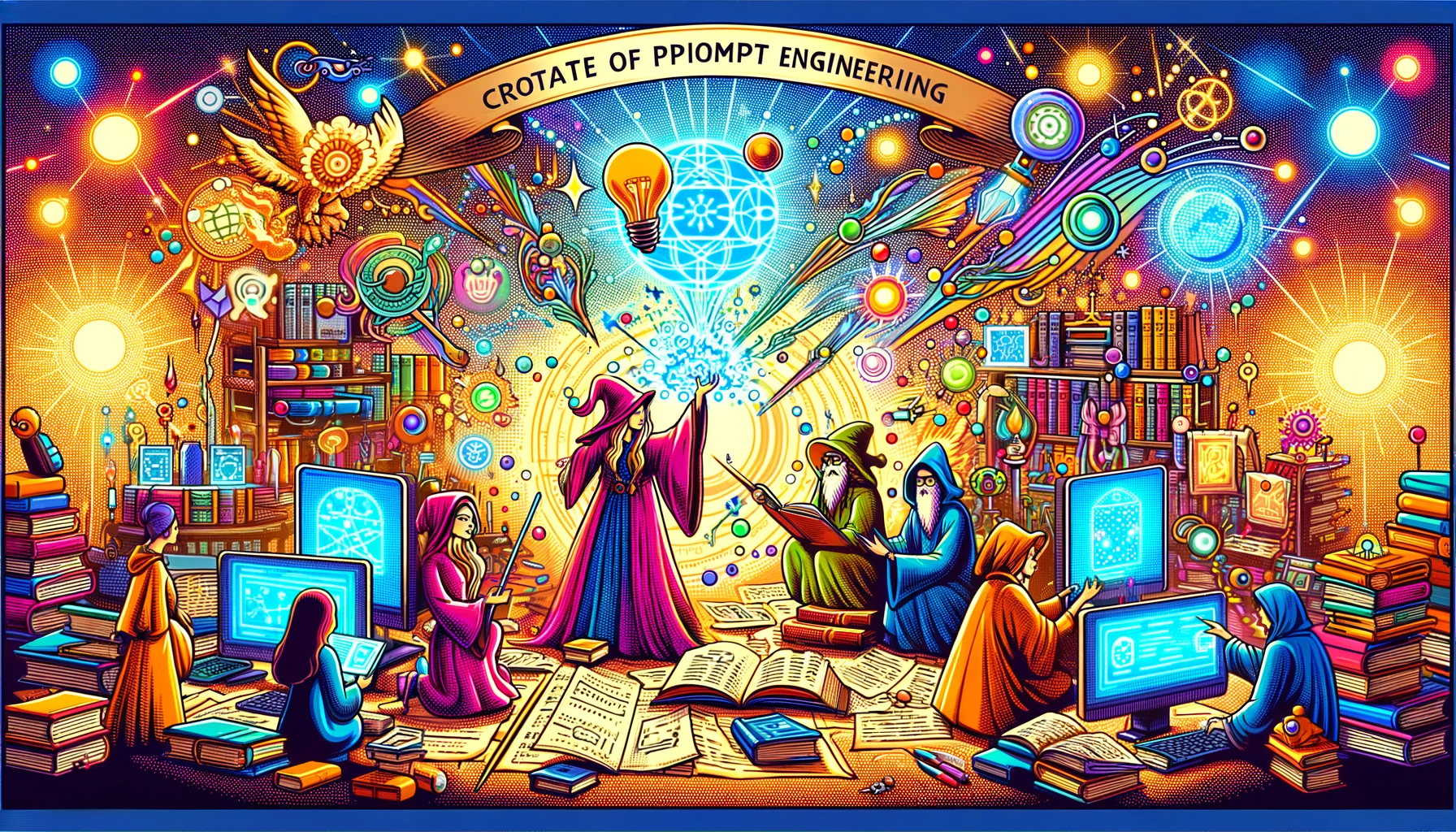In the ever-advancing realm of artificial intelligence, as it accomplishes more tasks year after year, concerns about the future of our workforce emerge. With AI automating many tasks we currently perform, the question arises: What will be the occupation of humans in 10 or 20 years? It’s a challenging question, and while historical patterns show the creation of new jobs during previous industrial revolutions, the rise of AI poses a unique challenge.
As automation adapts to new challenges and learns tasks both present and future, the question arises: Could AI take over jobs in the future? While predicting the future of work is challenging, examining current transformations in the job market can provide insights. One particular case raises the question of whether it’s the end of prompt engineers.
The evolution of deep learning has been rapid. From small neural networks solving specific tasks to enormous artificial brains handling a wide range of functions, the potential of these large models was initially hidden. The challenge was that these models, often in the research phase, lacked clear instructions on interaction. Interacting with these models, like GPT Chat or DALL-E, often only required natural language input, a prompt. However, it became evident that certain ways of interacting were more effective than others.
These interactions evolved into what is now known as “prompting” techniques – finding specific phrases that, when used as prompts, unlocked new functionalities or improved results. This art of communicating with AI models led to the emergence of a new field – prompt engineering. With individuals claiming to be prompt engineers offering PDFs with the best “spells” to master AI dark arts, websites sharing paragraphs of magic phrases, and schools offering courses in the magical arts, the prompt engineering industry was born.
However, recent developments in AI research indicate a shift. Instead of relying on human-generated prompts, AI itself is becoming the prompt engineer. The concept involves using powerful AI models to optimize and refine prompts for specific tasks. This novel approach, explored in recent papers, challenges the traditional optimization schemes seen in deep learning.
In this new paradigm, the model remains static, and all optimization occurs at the input level. The AI refines the prompts based on the desired outcome, creating a feedback loop that leads to better prompts and improved model performance. This shift challenges the conventional gradient descent optimization seen in deep learning.
The question arises: Does it work? Indeed, it does. Multiple iterations of prompt evaluations and refinements show that AI can design prompts that significantly increase task performance, demonstrating a shift in the role of prompt engineers.
While this transformative period in technology unfolds, the fate of prompt engineers seems uncertain. Yet, amidst these changes, there are two distinct roles emerging: the traditional prompt engineer and the more evolved version – the LMM Ops (Language Model Management Operations). The latter, focusing on engineering rather than just prompting, relies on a broader skill set and seems less susceptible to automation.
The era of prompt engineers may be fading, but the evolution of roles in AI-related fields is inevitable. As technology progresses, the emphasis shifts from the word “prompt” to “engineer.” It’s a transformative time, and the value we, as workers, bring to the technological ecosystem is yet to be fully defined.
As the landscape of AI evolves, prompt engineers are presented with an opportunity to transition into more sophisticated roles, akin to real engineers in the AI domain. Here are some important recommendations for prompt engineers looking to evolve into broader and more impactful roles:
- Embrace a Holistic Approach:
- Move beyond just crafting prompts and delve into understanding the broader AI ecosystem.
- Gain knowledge in areas such as model architecture, training processes, and the integration of AI into real-world applications.
- Deepen Technical Expertise:
- Acquire a deeper understanding of the technical intricacies of AI models, including their architectures, optimization techniques, and training methodologies.
- Explore advanced concepts in machine learning, neural networks, and natural language processing.
- Develop Programming Skills:
- Strengthen programming skills, especially in languages commonly used for AI development, such as Python and TensorFlow.
- Familiarize yourself with software engineering practices, version control, and collaborative coding.
- Learn Model Management:
- Gain proficiency in model management operations, including deploying models, monitoring performance, and ensuring scalability.
- Explore tools and frameworks for model versioning, containerization, and orchestration.
- Understand Data Pipelines:
- Deepen your knowledge of data pipelines, preprocessing, and feature engineering, as these play crucial roles in model performance.
- Explore tools and platforms for efficient data management and processing.
- Stay Informed on Ethical AI:
- Stay abreast of ethical considerations in AI development, including bias mitigation, fairness, and responsible AI practices.
- Engage in discussions around the ethical implications of AI technologies.
- Collaborate with Domain Experts:
- Foster collaboration with domain experts in specific industries to better understand the real-world applications of AI.
- Work on interdisciplinary projects to bridge the gap between AI and various domains.
- Explore AI Operations (AIOps):
- Familiarize yourself with AIOps practices, which involve using AI to enhance IT operations.
- Understand how AI can be applied to automate, optimize, and improve the efficiency of IT processes.
- Build Communication Skills:
- Enhance your communication skills to effectively convey complex AI concepts to non-technical stakeholders.
- Develop the ability to translate business requirements into AI solutions.
- Continuously Learn and Adapt:
- AI is a rapidly evolving field, so commit to continuous learning.
- Attend conferences, participate in online courses, and engage with the AI community to stay updated on the latest advancements.
By adopting these recommendations, prompt engineers can transition into roles that involve a more comprehensive understanding of AI, positioning themselves as valuable contributors to the development and deployment of advanced AI solutions.




+ There are no comments
Add yours